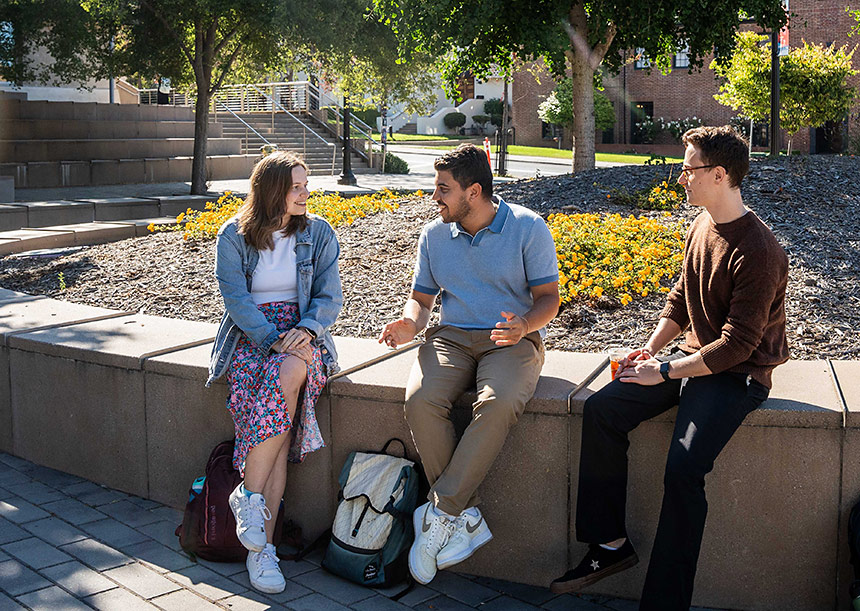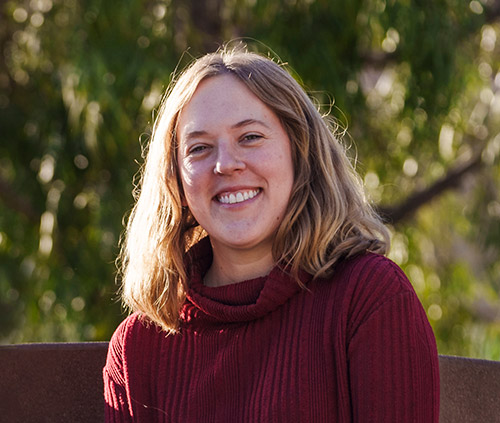
By Andrew Cohen
At Berkeley Law, recruiting students who want to use their legal education to benefit society is just part of the equation.
There’s the deep financial aid commitment to create access for strong candidates from any background. The vast programming that offers immediate options for direct experience. The dedicated training from leading educators. The robust summer grant funding that makes possible otherwise unpaid public interest internships. The attentive mentorship from seasoned experts. The Loan Repayment Assistance Program (LRAP), one of the nation’s most generous, which helps cover student loan payments for graduates working in public interest careers.
And, since 2021, there’s the Public Interest Scholars Program — a three-year scholarship covering full tuition and fees for exceptional students dedicated to public interest work. They can also obtain program funds to attend conferences, plan events, or join bar associations.

The initiative’s growth has featured expanded programming, funding, networking, and engagement through monthly lunches and mixers, a happy hour with Berkeley Law’s public interest staff and faculty, a local attorney roundtable, and a symposium.
“As the program evolves, the goal remains the same: to make it easier for our students to go into public interest and public service careers after graduation,” says Amanda Prasuhn, Berkeley Law’s director of public interest financial support. “We hope to uplift and support our scholars via the program’s scholarship component, community building, and mentorship.”
Now in its fourth year, the program recently welcomed 11 1Ls into its growing cohort. During the school year, they will be exposed to an array of events with attorneys, faculty, alumni, staff, and fellow students — 19 of them fellow Public Interest Scholars from the last two entering classes.
“To me, public interest law means working to achieve a world where justice for all truly means justice for all,” says new scholar Andrew Boardman ’27. “Coming to law school from nonprofit organizations dedicated to improving public policy, I placed importance on finding an institution that understands and values public-minded lawyering. That’s Berkeley Law.”
Clearing a path
As that community grows each year, scholars increasingly benefit from the insights and support of their predecessors — especially helpful in the search for a public interest job after graduation. The program’s first five members graduated in May, and are all starting impressive first jobs.
Jamilah McMillan is at the Family Justice Law Center in New York with a Berkeley Law Public Interest Fellowship; Nora Ellman joined the ACLU Reproductive Freedom Project in New York as an Equal Justice Works Fellow, Kevin Steen begins his public defense career at the Solano County Public Defender; Taylor Fox is a Law and Organizing Fellow with the Law and Political Economy Project, splitting time between New Haven and New York; and Amanda Young joined the ACLU of Northern California in San Francisco as a Law-Policy Department Fellow.

“I’m looking forward to building an alumni network that can provide mentorship to our current students,” Prasuhn says. “Not only is it useful to connect with someone already out in the field, but having a network of Berkeley Law graduates who were able to find, enter, and remain in interesting and meaningful public interest jobs is encouraging to anyone wondering if this path is feasible.”
Program applicants submit an essay addressing what drives their goals and how they plan to make a meaningful impact with their legal degree given the challenges that can come with pursuing a public interest career. They must demonstrate a commitment to public interest work during their law school summers and after graduating, and a bent toward leadership and initiative.
“The intention is to have a positive impact on the world and people around you,” says 1L scholar Mahima Chaudhary. “For me, a positive impact means that I am uplifting, advocating, or including the voices of people who tend to be silenced or ignored.”
Last year, Professor Jonathan Simon ’87 — a renowned criminal justice scholar and Berkeley Law professor since 2003 — became the program’s faculty member.
“I’ve always treasured the idea that my scholarship and critical perspective on legal education and the legal system can make a contribution to those who are doing the real work of achieving social justice,” says Simon. “Getting the opportunity for extended out of class conversations with and mentoring to our public interest scholars has been my best opportunity so far to realize that career-long ambition. So far I’ve learned far more from their experiences and ambitions than I’ve been able to impart, but I hope the experience has been valuable for them as well.”
A telling example
Chaudhary — who majored in economics, minored in public health, and discovered her interest in a legal career while studying at the London School of Economics — reflects the new scholars’ diverse interests. She tutored inmates at a county detention facility in Virginia, was the director of advocacy for Georgetown’s chapter of the American Civil Liberties Union (ACLU), and held internships focused on environmental law and public defense.
Later, Chaudhary worked as a paralegal for two firms and the ACLU of Colorado, helping attorneys investigate and litigate constitutional rights violations across the state. She assisted with a week-long jury trial that resulted in a $4 million verdict for an organization client who was subjected to an unconstitutional search of her home.
“I prepared the documents, slides, and notes that were used by our attorneys to advocate for justice and decency in the face of incompetent and violative police practices,” Chaudhary says. “Contributing to this effort reinforced my conviction that this work is not only important to me but necessary for the protection of our nation’s values.”
During the pandemic, she did post-conviction work through the Virginia Redemption Project, fueling an interest in defending and extending civil liberties. Now pursuing a career in international human rights or civil rights, Chaudhary views a law degree as invaluable to expand access to justice and shape a more equitable society.
“For me, public interest law means leveraging the skills, knowledge, and expertise that I’ll acquire from Berkeley Law to help others navigate systems that are stacked against the,” she says, adding that she eventually hopes to shape legislation and policies to dismantle prevalent societal inequities and inefficiencies.
Calling Berkeley Law “both meticulously intellectual and deeply empathetic,” Chaudhary says she enjoys being at a school “that develops lawyers who see beyond the elitist and superficial facades of test scores, grades, salaries, and prestige points” and attending classes where “discussions are nuanced, students are collaborative rather than competitive, and people are willing to engage in the vulnerability that allows us to learn from each other.”